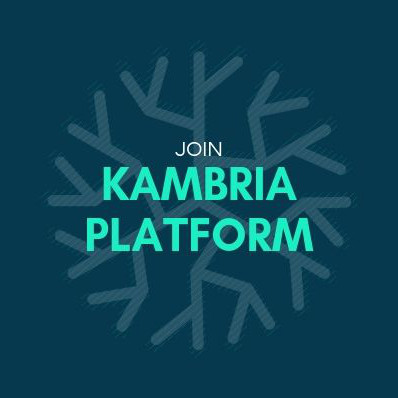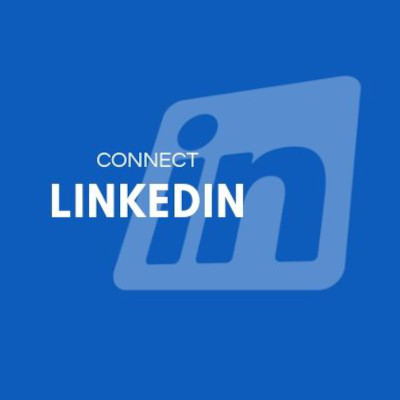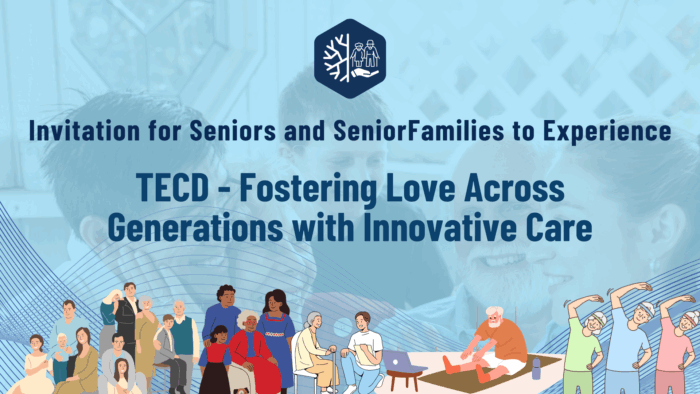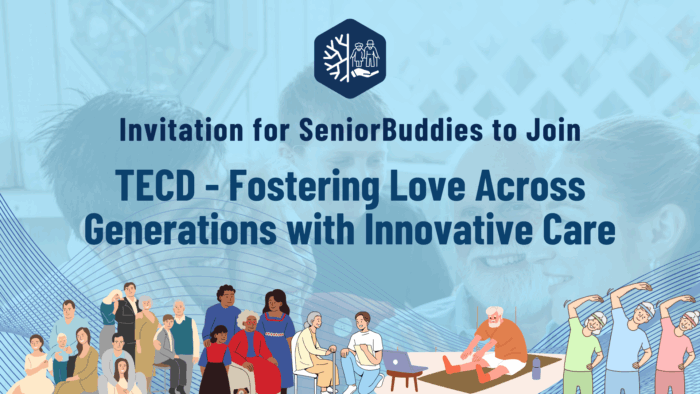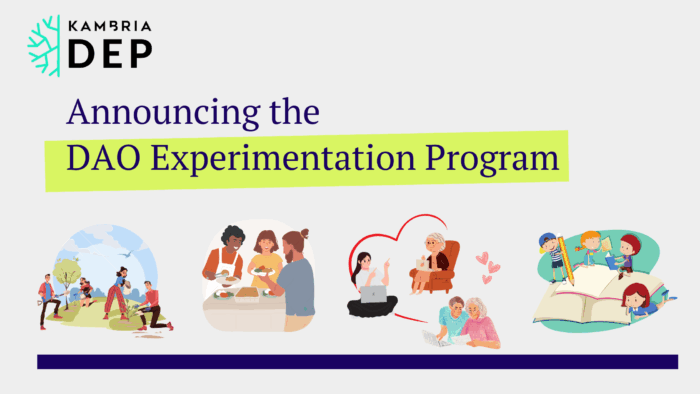Once again, thank you, everyone, so much for your overwhelming enthusiasm and support for this AMA! And thank you, George Li, so much for your time and your insightful answers to all of the questions from our community today! Here is a recap of our conversation; for clarity, the original text has been lightly edited for grammar and spelling.
If you could not catch the AMA live, please post your question in our main Telegram channel. The team will get back to you quickly.
Why did you become an advisor for Kambria, WeTrust is quite different?
I think the vision that Kambria has staked is bold, meaningful, and can be a good foundation that solves the challenge of getting multiple parties to coordinate on complex problems. How to create an ecosystem where incentives can help reduce the challenges in coordination and the waste & inefficiency in the innovation process that we often see.
Although WeTrust is focused on different verticals/industry, we also are in the process of leveraging blockchain technology with respect to creating an open, decentralized platform, and create incentives to foster collaboration.
Please tell us about WeTrust. What inspired you to start WeTrust?
WeTrust was started as a result, to help foster the creation of a more open, decentralized financial system, which can make digital gold more useful.
I see you went to Stanford. Is that how you met some of the Kambria team?
I met the Kambria team through some mutual friends — it’s all a very small ecosystem right now, and I want to work with and support great teams in the industry.
Super impressive that Vitalik is one of your advisors. How did you convince him to join WeTrust?
We shared with him our ideas on how we could build financial tools that improve financial inclusion, and this was early days in 2016, and I suppose our vision resonated with him, which is why he became an advisor.
There are many blockchain projects working on solving problems in financial inclusion. What differentiates WeTrust from the competition?
Our first product, the Trusted Lending Circle is dependant upon the blockchain ecosystem maturing in different areas ranging from mobile browsers, accessible local stablecoins (not just US dollar stable coins), lowered cost of smart contract deployment. While we continue exploring partnerships for this product, our current product focus is on Spring, which has fewer dependencies and connects the crypto community with those who need access to capital — in a much more direct way. We believe this product will get us on the same path, and allow us to gain traction with fewer dependencies.
As an advocate of financial inclusiveness, I’m aware of the daunting number of people who are without access to traditional banking services, which I feel is a basic human right. Which demographics/geographies are you pursuing first?
This is a big dilemma initially because being in the US, we can create great tools that we believe can help address financial inclusion. But many of the demographics/geographies need more mature additional supporting infrastructure in order to use these blockchain tools. Therefore, we are currently building products that we hope will better allow the crypto community to connect with those that need access to capital, and then evolve from there.
What is one quality in the Kambria team you love?
I’ve been following their progress and have been impressed with their innovation in designing systems that can incentivize disparate parties to collaborate in their own self-interest.
George Li, tell me, please, what will WeTrust work on in the next half a year? Early in the roadmap the team talked about a sidechain for a financial app and developing new wallet.
We will be focusing on the development of Spring, the crypto fundraising platform (currently focused on nonprofits). As we continue experiments on driving traffic and traction, we will be testing out demand for features such as personal fundraising pages, the ability for users to add to their user profile, seeking ways to help non-tech savvy folks to receive different forms of crypto, and many more!
[Moderator] WeTrust’s second product, WeTrust Spring, is live now! Check out the announcement here: https://blog.wetrust.io/introducing-wetrust-spring-64a73aef9a37
Can you tell us about the second product WeTrust Spring that you are launching?
Spring is a crypto fundraising platform — initially focused on nonprofits, because there is increasing demand from early crypto adopters to donate and support causes that they believe in; and this allows us to build towards our vision of financial inclusion — we’re starting first with simple mechanics of donations, and would like to expand to more complex interactions in the future.
[Moderator] I checked out the WeTrust Spring platform and was glad to see that VietSeed, the social project in Vietnam that our CEO Dr. Thuc Vu started, is on the platform, too. 👏👏😊
Yes! we are matching donations using Vitalik’s proposals that he discussed in his latest paper on “Liberal Radicalism: Formal Rules for a Society Neutral Among Communities”. VietSeeds is one of a few nonprofits that we selected to work with us on the pilot.
Here are some of our other partners we’re working with.
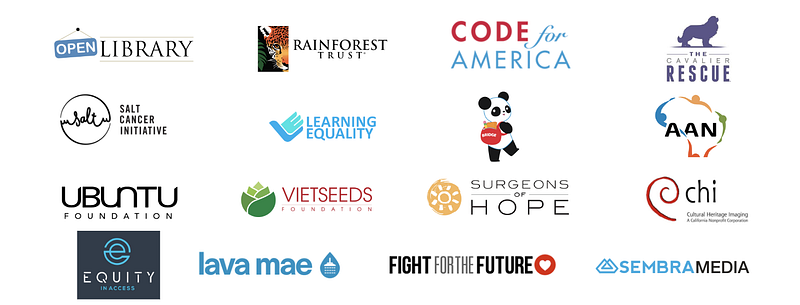
What impact do your previous experiences at Google and McKinsey have on you as a startup founder in the blockchain space?
They’ve helped in terms of building my ability to zoom in to the detailed execution details, and then zooming out to see the big picture, and set the longer term vision. My first startup went through StartX, a Stanford-backed startup incubator, and being in that environment helps expose you to a great community of fellow startup founders. These experiences have helped me meet quite a few friends and mentors who have helped shape our progress.
What are WeTrust’s key challenges to growth? How do you plan to address these challenges?
Some key challenges we face I believe are also faced by other consumer-facing companies in the blockchain ecosystem. More widespread adoption. Higher ease of use from a UI/UX perspective — especially on mobile.
For our product, which is a donation/crowdfunding platform, the current crypto market is in a bear market, so people may be more cautious about making donations. However, this is also the perfect time for us to focus on building and getting ready for the future when people are more excited about donations and contributing funds.
Hi George Li, Why do you think blockchain is critical to solving problems in financial inclusion?
Great question! Traditional finance works very well in many countries, yet, it has trouble scaling in others where there are fewer incentives for them to enter the market (many reasons); blockchain can allow a plethora of financial tools/ solutions/ products — which are tailor-made for the local community, allows people to build up credit history (and therefore credit identity), etc. The open platform and open nature of the blockchain can allow financial apps to be created for any kind of niche — just as websites/ blogs/ etc. can be created for any niche and interest. Definitely would require a longer conversation. 🙂
[The End]
ABOUT George Li — CEO and Co-founder of WeTrust
George Li is a co-founder and CEO of WeTrust.io, whose mission is to enable decentralized financial inclusion using blockchain technologies. To date, WeTrust has deployed the Trusted Lending Circle on the Ethereum blockchain, and has partnered with top nonprofit organizations in the US for its second product — a crypto fundraising platform for nonprofits called Spring. Learn more at spring.wetrust.io
George Li is also currently an advisor to several blockchain companies including Kambria, Marconi.org, Choon.co, and Bounty0x.io.
ABOUT Kambria
Kambria is an open innovation blockchain project that enables and incentivizes collaboration in R&D, manufacturing, and commercialization of advanced technology. We are developing our own public chain with protocols uniquely designed to address the current waste and inefficiencies in today’s innovation model. Kambria will allow for many verticals, including Biotech, Space, and Autonomous Vehicles, to be developed and thrive in the ecosystem. We are focusing first on the AI and Robotics vertical with the backing of our well-established robotics company, OhmniLabs. Through existing partnerships with top universities and large international corporations, as well as access to talented developers, we aim to build an ecosystem that can bring the next wave of frontier technology to provide value to billions of people around the world.
Thank you for your time!
The Kambria Team
Website: https://kambria.io/
Blog: https://blog.kambria.io
Whitepaper: https://kambria.io/Kambria_White_Paper_v2.pdf
Telegram (ENG): https://t.me/kambriaofficial
Telegram (KOR): https://t.me/KambriaKorea
Telegram (VIE): https://t.me/KambriaVietnam
Telegram (CHN): https://t.me/KambriaChina
Twitter: https://twitter.com/KambriaNetwork
Facebook Page: https://facebook.com/KambriaNetwork
Facebook Group: https://www.facebook.com/groups/kambria/
Discord:https://discord.gg/rjqDSdC
Reddit: https://www.reddit.com/r/KambriaOfficial/
Medium (ENG): https://medium.com/kambria-network
Medium (CHN): https://Medium.com/kambriachina
Steemit: https://steemit.com/@kambrianetwork
Weibo (CHN): https://www.weibo.com/kambriachina
Email: info@kambria.io
KAT is sold to be used on the Kambria platform.

